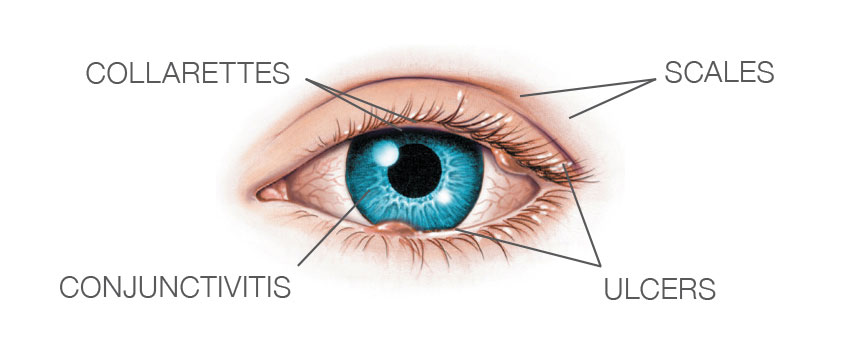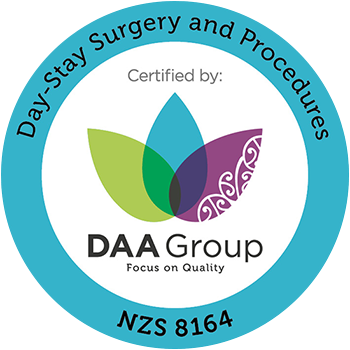Dry eyes occur when the eyes cannot produce enough ‘normal’ tears or when tears evaporate quickly because of a problem with the tear film’. There are many reasons why this might occur.

Meibomian gland inflammation and Blepharitis:
Some of the factors that can contribute to Dry Eyes.
Age and gender:
As we age, our eyes produce fewer tears, which is why dry eyes affect around 75% of all people aged over 65. Gender is also a factor, with women more likely to suffer than men.
Using a computer:
People who use a computer tend to blink less frequently than normal – about seven times per minute, rather than the normal rate of around 22 times per minute. This can cause increased evaporation of tears, and hence dry eyes. Positioning your monitor below eye level can help, as it allows the upper eyelid to cover more of the eye’s surface. Being aware of your blink rate, air circulation, and glare can also help.
Wearing contact lenses:
Dry eye is the leading cause of contact lens irritation. It is most common among soft contact lens wearers and can cause irritation, protein deposits and red eyes.
Use of some medications:
Some medications can lead to dry eye symptoms. If you use decongestants, antihistamines, blood pressure medications, oral contraceptives, antidepressants or eye drops for red eyes’, these may contribute to your symptoms.
Diseases:
Some diseases are commonly associated with dry eyes, including arthritis, diabetes, asthma, thyroid disease and lupus. Sjögren’s Syndrome is the name given to the combination of dry eyes, dry mouth and arthritis.
Inflammation of eyelid glands & eyelash follicles:
Inflammation of the eyelid glands (called meibomian glands) and eyelash follicles can compromise the tear’s quality film, which causes tears to evaporate more quickly. This is sometimes caused by an overgrowth of bacteria normally found on the eyelids. If this is the case, you can often treat the problem with warm compresses, good eyelid hygiene and sometimes, special antibiotics.







